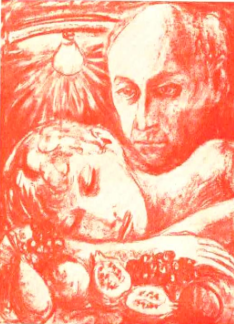by Paolo Frascà
This article explores Umberto Saba’s (1983-1957) only and unfinished novel, Ernesto (1975), from the perspective of sexuality and Queer studies, while also paying attention to the novel’s language and its autobiographical underpinnings. By examining aspects of the work that render it an important testimony of queer desire, this essay aims to shine a light on Ernesto as an important Italian literary text and on the text’s ability to reveal significant and timeless aspects of the human condition, especially with respect to sexual desire, its liberational potential, and its relationship to social structures. Through its theoretical framework, the article also aims to reclaim Queer analytical perspectives that derive from an Italian context, such as those found in Mario Mieli’s, Teresa de Lauretis’, and Luciano Parinetto’s critical theories. Therefore, while this essay joins the conversation of Queer studies in the Anglophone world, it concurrently reclaims space for Italian literature and thought within this presently Anglo-centric field of inquiry.

